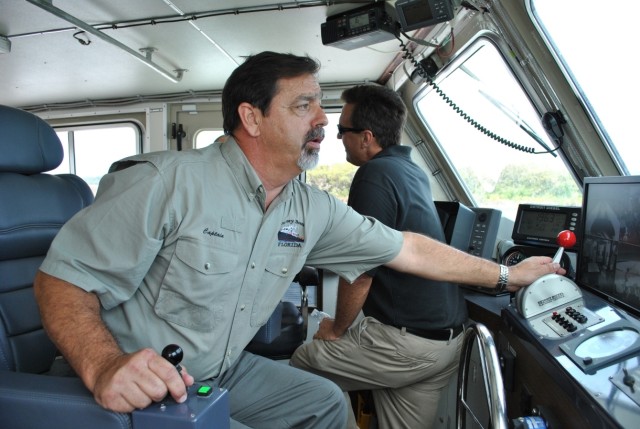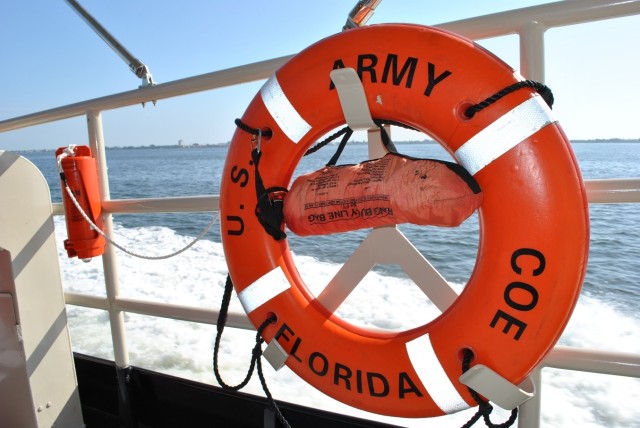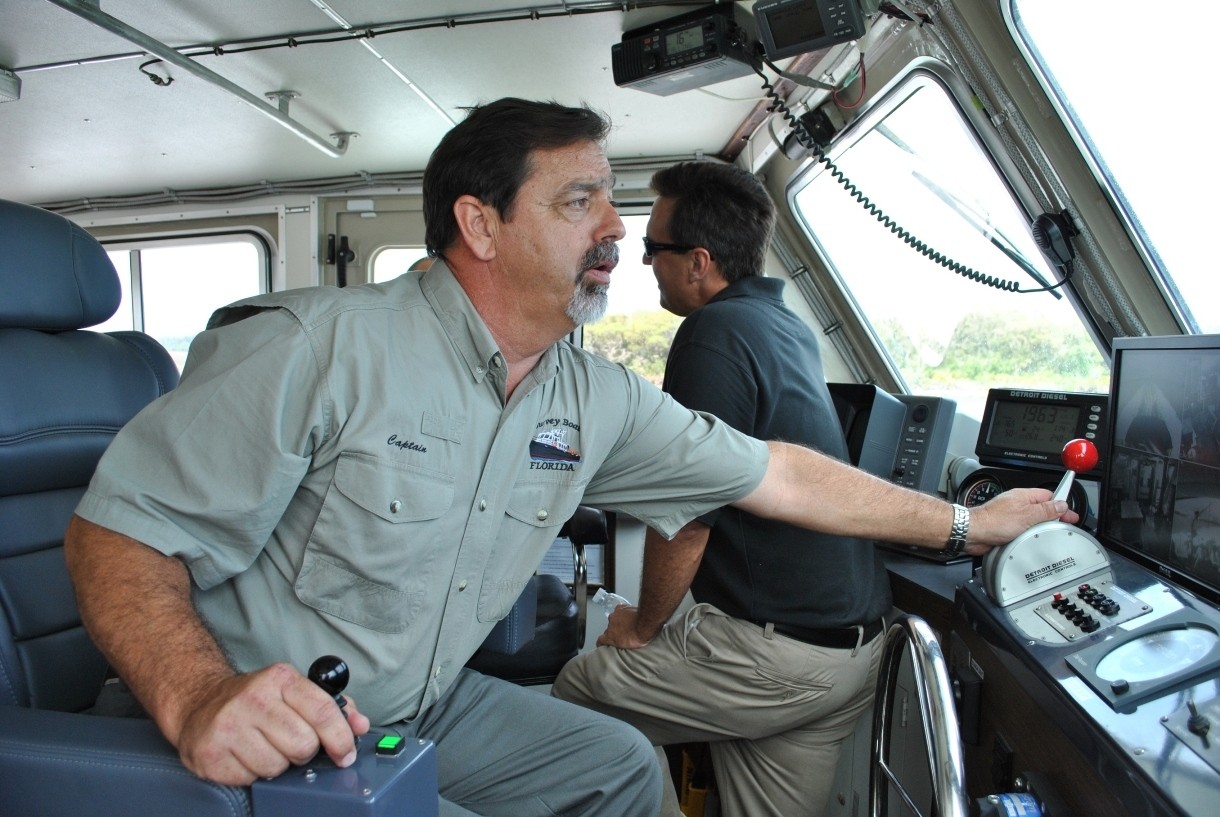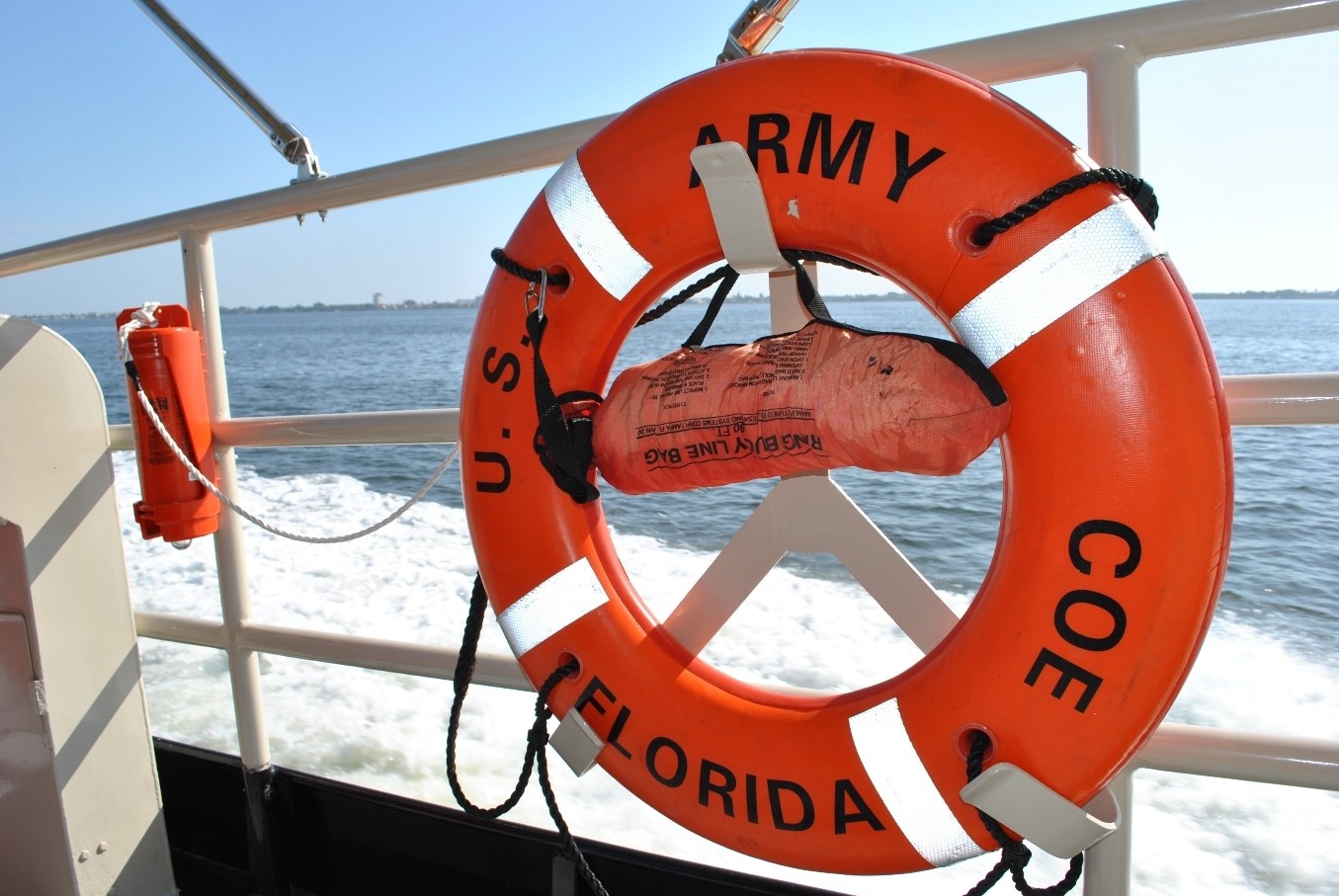JACKSONVILLE, Fla. - By the time the sun had set over the gruesome scene of the Easter 2009 boat crash on the Atlantic Intracoastal Waterway in Palm Valley, Fla., five people had died, nine were severely injured and nearly $50,000 in property damage had resulted. Injuries included skull, neck, and spinal fractures, lacerations to internal organs, concussions and more.
Like many accidents, the crash might have never happened had the boat's operators and passengers heeded recommended safety precautions.
"The crash in April of 2009 was, sadly, a perfect example of what never to do while boating," said Dave Morrison, a boat captain with the U.S. Army Corps of Engineers, Jacksonville District.
The National Transportation Safety Board determined the probable cause of the crash was the inattention of the boat operators, most likely the result of alcohol impairment on the part of the usual operator and inexperience on the part of the designated operator. Alcohol and illicit drugs were found on the boat and in some of the bodies of the victims. Although the operator at the time of the crash was not under the influence of alcohol or drugs, she had never before operated a boat. There were also 14 people aboard instead of the maximum capacity of 12. At the time of the crash, the designated operator was not required by Florida law to have completed a boating safety course. In May of 2009, Florida revised its laws to require persons born on or after Jan. 1, 1988 to complete a boating safety course before operating a boat.
According to Morrison, a retired U.S. coastguardsman who has been a licensed boat captain since 1983, completing a boating safety course, avoiding alcohol consumption if operating a boat, proper use of lifejackets and situational awareness are keys to making sure boating remains safe and fun.
"Part of what makes boating appealing for many is that it is about freedom and good times with good friends. Often the partying involves alcohol," said Morrison. "But boating while impaired, distracted, or inexperienced can produce close calls or crashes. It is great to have fun and relax, but you have to be prudent. It's not enough to make sure the operator is sober, you have to make sure the operator knows how to operate the boat."
Morrison recommends that even long-time operators participate in safety courses.
"My father, who has 35 years of boating experience, took a boating safety class and said even he learned things about boating that he never knew."
Some of Morrison's earliest memories are of his mother, an American Red Cross water safety instructor, teaching him how to swim. He recommends parents make sure their children learn how to swim at an early age and to make sure children use lifejackets.
Adam Tarplee, a natural resources program manager with Jacksonville District and an avid boater, agrees.
According to the Centers for Disease Control, about 90 percent of those who drown in any given year were not wearing life jackets. In an effort to make water safety education more accessible, Tarplee starred in a water safety podcast, along with "Bobber the Water Safety Dog," one of the U.S. Army Corps of Engineers' mascots used to educate and engage children. The podcast appears on Jacksonville District's YouTube channel. Like Morrison, Tarplee recalls time spent aboard a boat since early childhood. While both have extensive experience operating boats, they continue to become educated about boating safety and urge others to do the same.
Among the Corps' recommendations are ensuring one's boat has all required safety equipment and that it is fully operational, refraining from overloading a boat with people or gear, ensuring that all passengers properly wear the right type of lifejacket, and properly maintaining the boat by following the manufacturer's guidelines for operation and maintenance.
"Boating is a lot of fun, but it comes with a lot of responsibilities, too, and you must always exercise good judgment," Tarplee said.




Social Sharing